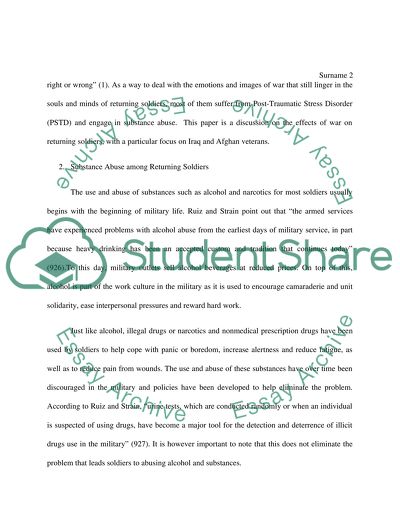Cite this document
(“Iraq and afghan veterans Research Paper Example | Topics and Well Written Essays - 2500 words”, n.d.)
Iraq and afghan veterans Research Paper Example | Topics and Well Written Essays - 2500 words. Retrieved from https://studentshare.org/miscellaneous/1637643-iraq-and-afghan-veterans
Iraq and afghan veterans Research Paper Example | Topics and Well Written Essays - 2500 words. Retrieved from https://studentshare.org/miscellaneous/1637643-iraq-and-afghan-veterans
(Iraq and Afghan Veterans Research Paper Example | Topics and Well Written Essays - 2500 Words)
Iraq and Afghan Veterans Research Paper Example | Topics and Well Written Essays - 2500 Words. https://studentshare.org/miscellaneous/1637643-iraq-and-afghan-veterans.
Iraq and Afghan Veterans Research Paper Example | Topics and Well Written Essays - 2500 Words. https://studentshare.org/miscellaneous/1637643-iraq-and-afghan-veterans.
“Iraq and Afghan Veterans Research Paper Example | Topics and Well Written Essays - 2500 Words”, n.d. https://studentshare.org/miscellaneous/1637643-iraq-and-afghan-veterans.


